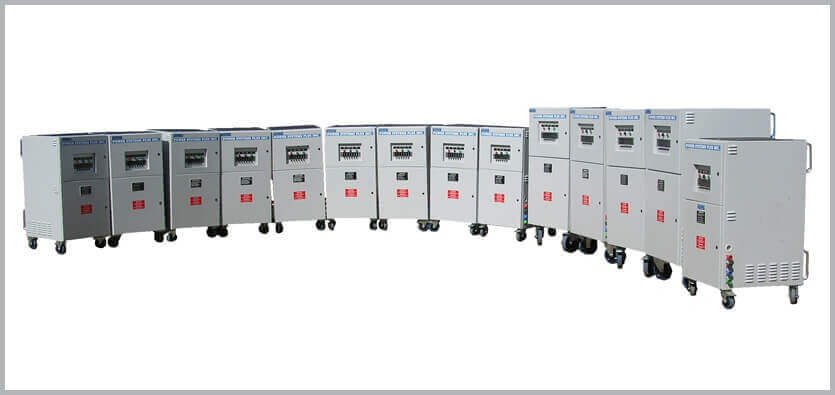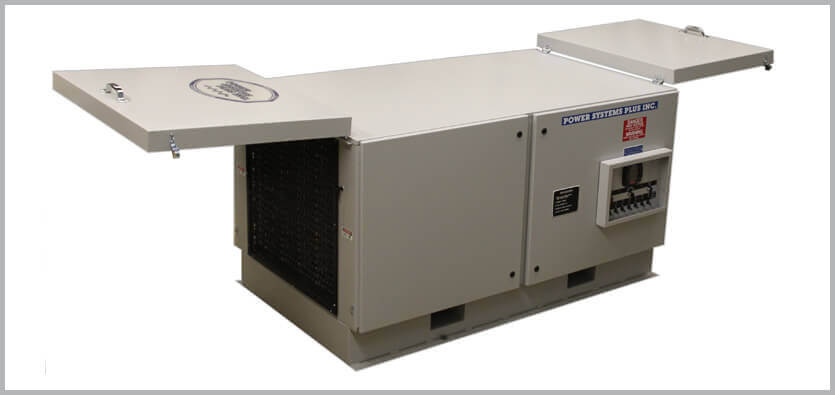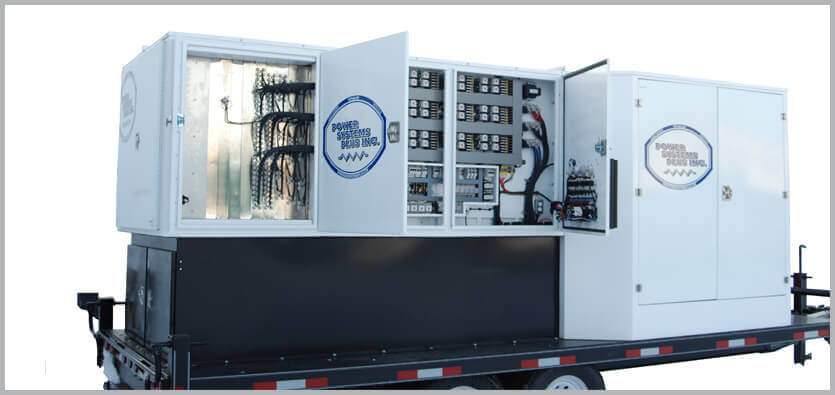
A load bank is a self-contained and systematic device that generates a specific amount of electric load in order to determine the dependability of power systems like UPS systems and generator output. In other words, load bank is a device that tests the performance of a power system.
Load testing of power generators can help avoid loss of utility power and ensures that the power generators support loads by maintaining frequencies and voltages that are compatible with the design criteria. Load banks can be categorized as inductive, resistive, and capacitive. The applications of load banks are broad from testing facility generators, and UPS systems to data center tests.
Resistive load banks
A resistive load bank is considered as the common type that provides an equal amount of load for prime movers and generators. It removes the energy from the entire system in a very systematic way. Resistive load banks create load by converting electrical energy into heat using high-performance resistors. Resistive load banks test a generator system to its full capacity.
The best thing about resistive load banks is that they can be moved easily from generator to generator for testing and maintenance of larger AC and DC power equipment such as UPS systems and generators. There are some further types of resistive load banks such as AC stationary, AC small and large portables, and AC radiator/water cooled.

Inductive load banks
The main part of an inductive load bank is an iron core reactive element which generates a lagging power factor load. The primary function of a load bank is to test and maintain the overall functionality of a power system from a generator to a transformer.

Electronic load banks
Electronic load banks are used for precision testing. They are fully programmable devices that simulate a solid-state load and provide constant current loading and power.
It is very important to test emergency generators thoroughly and regularly as it ensures that the systems are in good working condition. Load bank devices offer a number of benefits and streamline maintenance and commissioning activities for operators.
The prime benefit of load bank testing is that it ensures the emergency power systems are functional and ready to take over when regular power supply is interrupted. They also help keep a record of generators evaluation. Companies can either buy or rent load banks to meet their testing and commissioning needs. Load bank providers, like Power Systems Plus in Canada, also offer custom load bank solutions along with installation and maintenance services so that the unique needs of clients can be served within a limited budget.






